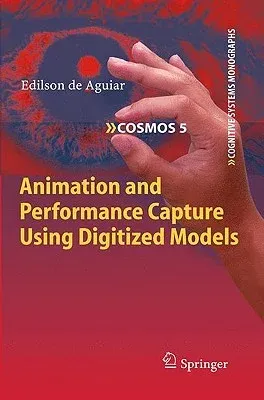The realistic generation of virtual doubles of real-world actors has
been the focus of computer graphics research for many years. However,
some problems still remain unsolved: it is still time-consuming to
generate character animations using the traditional skeleton-based
pipeline, passive performance capture of human actors wearing arbitrary
everyday apparel is still challenging, and until now, there is only a
limited amount of techniques for processing and modifying mesh
animations, in contrast to the huge amount of skeleton-based techniques.
In this thesis, we propose algorithmic solutions to each of these
problems. First, two efficient mesh-based alternatives to simplify the
overall character animation process are proposed. Although abandoning
the concept of a kinematic skeleton, both techniques can be directly
integrated in the traditional pipeline, generating animations with
realistic body deformations. Thereafter, three passive performance
capture methods are presented which employ a deformable model as
underlying scene representation. The techniques are able to jointly
reconstruct spatio-temporally coherent time-varying geometry, motion,
and textural surface appearance of subjects wearing loose and everyday
apparel. Moreover, the acquired high-quality reconstructions enable us
to render realistic 3D Videos. At the end, two novel algorithms for
processing mesh animations are described. The first one enables the
fully-automatic conversion of a mesh animation into a skeletonbased
animation and the second one automatically converts a mesh animation
into an animation collage, a new artistic style for rendering
animations. The methods described in the thesis can be regarded as
solutions to specific problems or important building blocks for a larger
application. As a whole, they form a powerful system to accurately
capture, manipulate and realistically render realworld human
performances, exceeding the capabilities of many related capture
techniques. By this means, we are able to correctly capture the motion,
the timevarying details and the texture information of a real human
performing, and transform it into a fully-rigged character animation,
that can be directly used by an animator, or use it to realistically
display the actor from arbitrary viewpoints.

